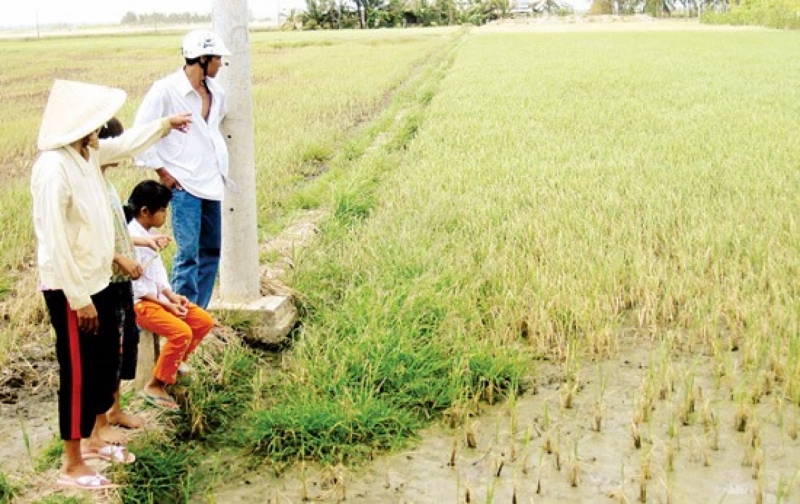




HCM CITY — Climate change has a huge impact on HCM City’s water resources, the head of its public water utility has warned.
“Climate change, especially drought and saltwater intrusion [into rivers], has directly affected the Đồng Nai and Sài Gòn Rivers, making water treatment difficult,” Trần Văn Khuyên, chairman of the Sài Gòn Water Supply Corporation, told Việt Nam News Agency.
To cope, the corporation has actively worked to adjust the water supply master plan, incorporating provisions to build more lakes and tanks to store treated and untreated water and pumping stations.
Now water in the Đồng Nai and Sài Gòn have salinity levels of 12mg/litre, 2mg higher than normal but lower than at the same time last year when it was 30mg/litre.
“This year we don’t need to worry about the salinity level because the allowed limit is 250mg, and we plan to draw water from Dầu Tiếng and Trị An Reservoirs and from under the ground to reduce salinity levels,” Hoàng Hà, head of the corporation’s water quality management department, said.
Đặng Hoà Vĩnh, head of the HCM City Natural Geography Institute’s Water Resource Department, said: “This year the drought is not expected to be as serious as last year thanks to prolonged rains.”
Vĩnh said Củ Chi District has a number of lakes and they can be used to store water for the dry season.
“HCM City can build more water storage lakes along rivers.”
Vĩnh also requested the Sài Gòn Water Supply Corporation to install pipes to bring water directly from Dầu Tiếng and Trị An Reservoirs to water pumping stations.
“We will need a huge investment in the beginning, but we can ensure the quality and quantity of water for the long term in the context of climate change and more serious droughts and saltwater intrusions in future.”
The corporation has completed two water storage lakes with a combined capacity of 180,000 cubic metres at the Thủ Đức and Tân Hiệp Water Supply Plants, and is preparing to build more water lakes in Bình Chánh District soon.
Experts said authorities should consider building rainwater storage lakes in outlying districts like Củ Chi, Hóc Môn, Bình Chánh, and Cần Giờ.
“Rainwater is the freshest, cleanest and safest water source. People can use rainwater without treatment. Rainwater storage will save expense and ease water supply pressure on utilities,” Vĩnh added. – VNS